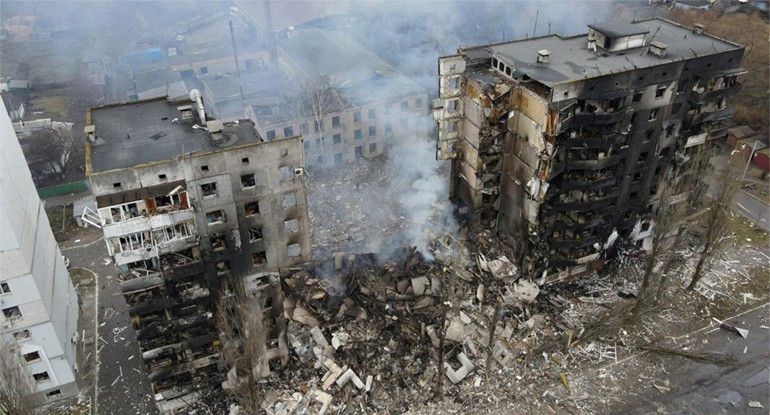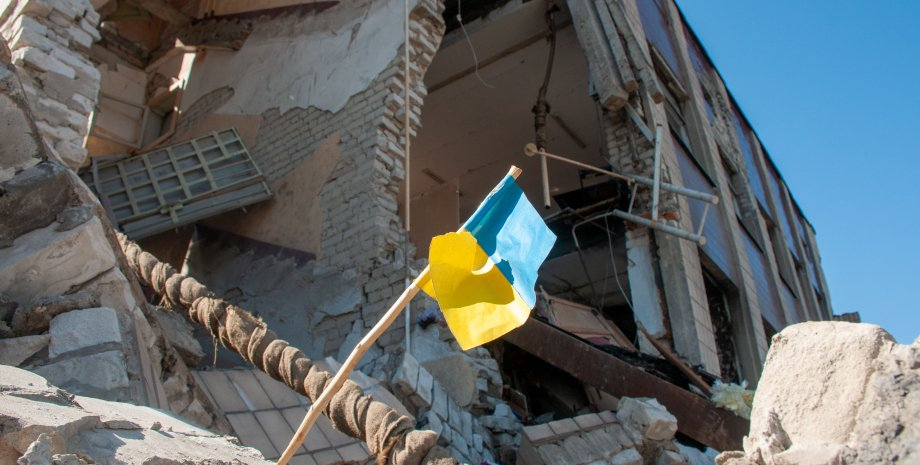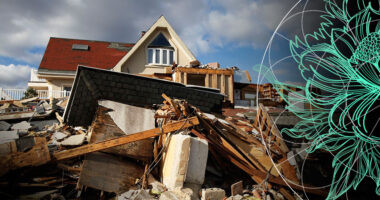The year 2022 can be characterized as one of the most challenging years in recent decades from the social, financial, political environment points of view, the word “crisis” characterizing better than ever a period of twelve months.
- The main action undertaken by the re/insurers with business on the Russian market – was reducing activity in Russia and exiting the market.
- The representatives of subsidiaries of international Re/Insurance groups with active in Ukraine stabilized their results and activities.
- Most major re/insurance players have announced they maintain their business targets for 2022.
According to XPRIMM, the COVID-19 pandemic, the energy issue, the financial crisis and the risk of major world conflict caused by the war in Ukraine – were reflected in the results, decisions, and actions of the main players in the global re/insurance industry.
In the following, we are just trying to point out some of the most important actions taken in 2022 by the main global actors in the re/insurance industry because of the military conflict – the main crisis during the year that will end in a few days.
The first action undertaken by the re/insurers with business on the Russian market once the conflict broke out – was to sanction it by reducing their activity in Russia or even exiting the market.
For example, in March, Italy’s insurer Assicurazioni Generali has decided to close its Moscow representative office, resign from positions held on the board of the Russian insurer Ingosstrakh, and wind down its Europ Assistance business following the invasion of Ukraine.

At the same time, largest re/insurance brokers worldwide have left all the Russian market. In the beginning of March, Marsh McLennan has decided to cease and exit all its businesses in Russia, following the Russia-Ukraine conflict. Willis Towers Watson and Aon have followed, also ceasing their business in the country in response to Russia’s invasion of Ukraine.
In May, Zurich Insurance Group announced it has agreed to sell its business in Russia to 11 members of the unit’s team. Under its new owners, the business will operate independently under a different brand, while Zurich will no longer conduct business operations in Russia
Global reinsurer Munich Re informed it supports the sanctions against Russian economy. The Group informed will not renew existing contracts in Russia and Belarus, and new business has been suspended. The Group will do the same with its investments in the region, the German reinsurer said in a press statement.
French reinsurer SCOR mentioned that SCOR PO (the subsidiary owned by SCOR in Russia) is has stopped underwriting new business.
At the beginning of Summer, the Allianz Group has agreed to sell a majority stake in its Russian operations to Interholding, the owner of Russian P/C insurer Zetta Insurance. Upon the completion of the transaction, Allianz will hold a minority stake of 49.9% in the combined company.
In December, Dutch insurance group Aegon announced it has sold its exposure as an investor to Russia. On March 8 of this year, shortly after the Russian invasion of Ukraine, Aegon announced that it had started winding down its already negligible investments in Russia.
From a financial point of view, it can be appreciated that the reinsurance industry, once again, has proven its resilience, the major global re/insurers booking reserves for potential losses arising from Russia’s war of aggression against Ukraine.
More than that, despite a very complicated environment for business, the representatives of subsidiaries of international groups with active in Ukraine affirmed they have gradually stabilized their results and activities. Most major re/insurance players have announced they maintain their business targets for 2022, managing to ride the crisis waves.
On the other, there are business losses at the industry level caused by the sanctions imposed on Russia, but they are assumed.
However, the global geopolitical instability with wide ranging macroeconomic consequences has more consequences on business lines such as Political Risks, Credit and Surety, and Aviation, while numerous NatCat events and other further pandemic-related strains in life and health reinsurance having a much a bigger impact on re/insurance than Russia-Ukraine War.
In fact, the dimensions of the crises related to the crisis in Ukraine are the ones that predicted a “heated” and challenging renewal season for January 2023, according to the statements of Global re/insurers at the last major events of the year: Rendez-Vous de Septembre and Bade-Baden Meetings.

In the negotiations taking place on contract renewal, it has turned out that the international insurance industry is no longer willing to agree on coverage for Russia and Belarus, and the options for coverage in Ukraine are also very limited.
The insurance industry’s core business was affected by the consequences of the war from the start. In the beginning, there was the withdrawal of “Western” reinsurers from the Russian market, followed by the self-isolation of the Russian insurance market and the interruption of cross-border payment flows due to the declaration of martial law in Ukraine (see Exclusions into International Reinsurance Coverage for Ukraine, Russia & Belarus).
Both markets – Belarus plays a subordinate role here given the low level of international trade and investments – were thus isolated, but insurance cover was still available locally, albeit with significantly reduced capacities, especially in Ukraine.
It was therefore reassuring that international insurance programs were honoured during their remaining contract period in 2022 and coverage was provided for all three states involved in the war via the Financial Interest Clause of the master contract.
According to Marsh McLennan, businesses and governments should not lose sight of the indirect consequences of the Russia-Ukraine War, which may persist for a long time.
This includes the continuing risk arising from the large volume of new economic, financial and trade sanctions; the global impact arising from the reduced availability of key commodities such as oil, fertilizer and grain; and potential insurance claims made as a result of the conflict.
………………………………….
AUTHOR: Oleg Parashchak – CEO Finance Media & Editor-in-Chief at Beinsure Media








